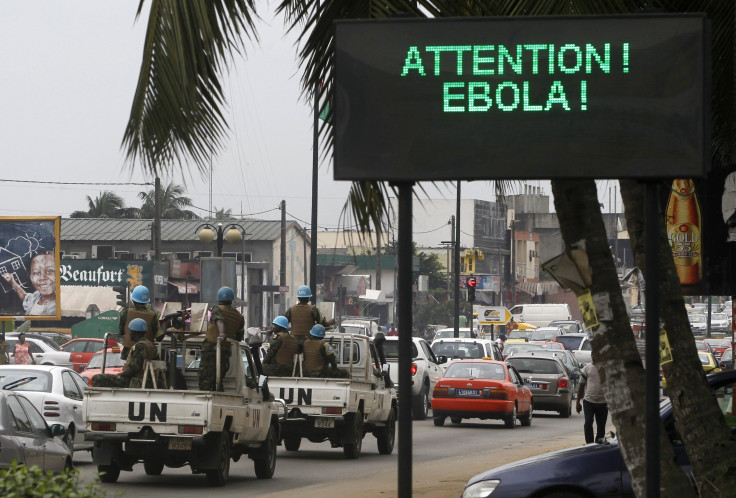Fatalities In West Africa Ebola Outbreak Total 1,220; Virus Remains Contained Within 4 Countries

West Africa's Ebola outbreak has swollen to 2,240 total cases in Guinea, Liberia, Sierra Leone, and Nigeria, resulting in 1,229 total fatalities, the World Health Organization (WHO) stated on Tuesday. Ebola virus disease ranks among the world’s most virulent diseases, though it is not one of the most infectious, as it is transmitted only by direct contact with the blood, bodily fluids ,and tissues of infected animals or people. Between Aug. 14 and 16 alone, health officials reported 113 new laboratory-confirmed, probable, and suspected cases of Ebola virus disease and 84 deaths.
WHO noted the outbreak remains within these countries, while also indicating the four governments have established quarantine zones in the areas of highest transmission including the cities of Gueckedou in Guinea, Kenema and Kailahun in Sierra Leone, and Foya in Liberia. The United Nations World Food Programme and WHO are working together to distribute food to the nearly one million people living in the quarantine zones in Guinea, Liberia, and Sierra Leone. Providing regular food supplies is a necessary measure to limit unnecessary movement.
WHO finds the situation worst in Liberia and Sierra Leone, where 80 percent and 70 percent, respectively, of its citizens live in poverty, while Nigeria appears to be more capably confronting the disease. The first imported case was detected during July in Lagos, the portside city, and since then officials have confirmed the city’s 12 cases, including infected medical staff, to be part of a single chain of transmission. Tracing contacts along this chain, Nigerian health officials along with staff from the U.S. Centers for Disease Control and Prevention have not identified any further cases.
While much of its population, 70 percent, lives in poverty, Nigeria counts among possible advantages in defeating a potential Ebola virus outbreak nearly 70 federally-controled national and regional TV stations with additional stations operated by all 36 of its states. By contrast, Liberia and Sierra Leone have far less communication services available to their people.
WHO ranks the situation in Guinea, site of the virus’s first appearance in West Africa last December, as “less alarming” than in either Liberia or Sierra Leone. Community leaders have helped raise public awareness and enjoined cooperation from 26 villages resistant to outside help, resulting in a surge of reported cases. However, last week the virus infiltrated a previously unaffected area in Guinea, and health officials suggest the risk of a new eruption of cases is always possible as the outbreak is not yet under control.



























